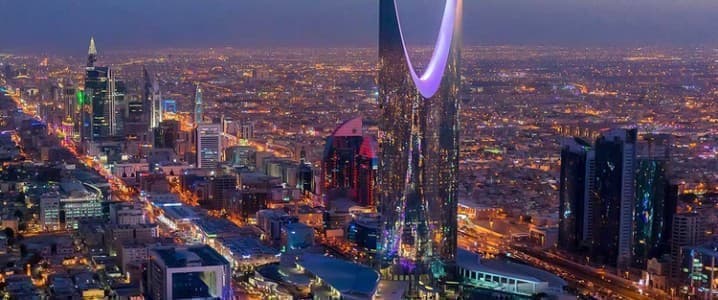Time is running out for oil-dependent nations. The world is transforming quickly and climate change is accelerating oil’s demise even faster. Despite fossil fuel’s so-called imminent fall of grace with buyers, most consumers will require oil and gas in the foreseeable future. Before the Coronavirus devasted the global economy, oil consumption was slated to grow slightly until 2030 and remain stable for the next couple of decades. Although it is unclear how demand will develop after the current crisis, certain energy-dependent nations are using the opportunity to create a modern economy and reduce dependence.

Especially Saudi Arabia has been vocal on this point during the past couple of years. Ever since the reform-minded crown prince became the de facto leader of the oil-rich kingdom, Riyadh has laid out plans to transform the country's economy. This includes social transformation as well as physical investments in technology and infrastructure. In order to increase economic activity, Saudi women should participate more in the workforce which stands at 23 percent currently (the global average is 48 percent).
In order to finance the ambitious 'vision 2030' program, a partial IPO of Saudi Aramco the country's economic crown jewel is supposed to produce the necessary funds for modernization. However, just $25.6 billion was offered and the stocks were listed on Saudi’s local exchange Tadawul instead of London and New York as international buyers failed to live up to expectations.
Despite the IPO’s failure, there is some hope that the natural cycle of oil prices will give Saudi reformers a second, and most likely last, chance.
According to rumors, Aramco is eyeing a potential sale of its pipeline business that could produce billions of dollars. The Saudi energy giant is working with JPMorgan Chase and Mitsubishi Financial Group to prepare a potential deal. However, a formal procedure hasn’t been started yet as the current environment is far from ideal. Instead, international bankers and consultants will prepare a deal in order to put it on the market when oil prices are on the rise again. Related: A Major Bull Run Is Forming In Oil Markets

Source: www.ogj.com
The Saudi's are betting on what could become the last big oil-price cycle to generate the needed funds for modernization. The history of the oil sector has shown that every two or three decades a cycle occurs where prices rise and fall. The past cycle ended when the Coronavirus devasted markets and reduced demand by approximately 30 million barrels or 30 percent in May. Assuming cycles run for 20 or 30 years, the coming round would end somewhere between 2040 and 2050. Although much is uncertain when it comes to price development predictions, it is fair to assume that demand will substantially decrease at the end of this period.

The Saudis are betting on a combination of favorable circumstances to maximize the benefit of having the second-largest proven oil reserve and some of the lowest production costs in the world. It remains highly uncertain whether crown prince Muhammad bin Salman’s (MBS) ambitious goals can be achieved during the next and last cycle.
Multiple foreign policy blunders such as the war in Yemen, the murder of journalist Khashoggi and the alienation of Qatar from the GCC present a serious challenge to the Saudi plans.
As stated before, Saudi Arabia’s modernization plans have a physical and social component. The vast majority of the financial resources are intended for investments in technology and infrastructure. The social aspects, however, are much more difficult to attain due to religious and cultural reasons.
Legitimacy for the reign of the house of Saud (Saudi Arabia’s ruling family) is solidified by the support of conservative Wahhabi clerics, a branch of Islam. Social changes such as more women in the workforce are not supported by imams who have openly spoken out against these measures.
Also, the Saudi society is largely dependent on subsidies and direct cash handouts to maintain the relatively high standard of living. When income from energy decreases over the decades, major behavioral changes should enforce a workforce that is more efficient and dynamic. Social aspects of modernization are difficult to attain and take many years to achieve under normal circumstance.
Considering the herculean challenges and the poor track record of Saudi leaders, it seems that the odds are not in their favor.
By Vanand Meliksetian for Oilprice.com
More Top Reads From Oilprice.com:
- Could Brent Crude Oil Prices Ever Fall Into Negative Territory?
- Big Oil’s Dilemma: Cut Dividends Or Cut Operations
- Brent Oil Price Could Double By December



















This means that the underlying problems are never really addressed, the major one being that there is no history of technological, or industrial development emanating from the Middle East, any attempts have been stifled by religious dogma. The main one of which being that if a Muslim can live off the work of non believers then they should do so.
In the Muslim calender the year is 1441, look at England at a similar time, and compare, if they had no money from oil where would they be?
The other, possibly more worrying, problem is that the Wahhabi branch of the Muslim religion supported by all terrorists.